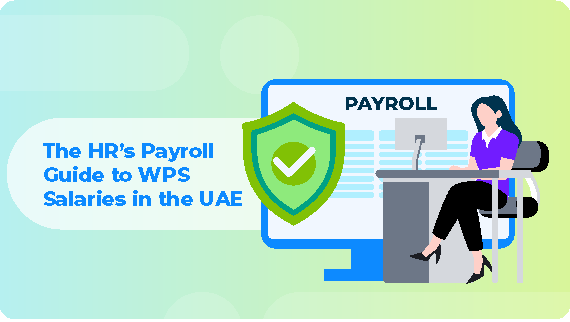If you’re an employer, HR manager or finance professional who runs payroll or takes care of your employee’s salaries in some capacity, then you’re probably already familiar with the UAE’s labour laws, WPS payroll processing and the related regulations.
The Wages Protection System (WPS) is a mandatory electronic system implemented by the Ministry of Human Resources and Emiratization (MOHRE) in the UAE. It ensures that employees are paid their wages on time, correctly, and in a transparent manner.
Let’s take a look at this step-by-step guide for an overview of the WPS Payroll Processing process, which will cover key steps, requirements, and best practices.
WPS Payroll Processing in the UAE: Key Steps
1) Registration with WPS:
- Register your company with MOHRE to obtain a WPS registration number.
- Provide all the required information about your company, including its legal name, address, and contact details.
- Submit the necessary documents, such as your trade license and labour contract copies.
2) Employee Registration:
- Make sure to register each of your employees on the WPS system, providing their personal information, employment details, and bank account information.
- Ensure that the employee’s bank account is registered with the WPS system.
3) Salary Calculation:
- Calculate the gross salary for each employee, including basic salary, allowances, and overtime pay.
- Deduct any applicable taxes, such as income tax and social security contributions.
- Calculate the net salary payable to the employee.
4) WPS Data Entry:
- Input the calculated salary details for each employee into the WPS system.
- Verify the accuracy of the entered data before submitting.
5) Salary Transfer:
- Initiate the salary transfer through the WPS system.
- The system will automatically transfer the net salary to the employee’s registered bank account.
6) WPS Report Generation:
- Generate WPS reports to track salary payments, deductions, and other relevant information.
- These reports can be used for compliance purposes and financial analysis.
WPS Requirements and Best Practices
- On-time Payments: Ensure that salaries are paid within the stipulated timeframe according to the UAE labour laws and/or the timeframe specified in the employee’s contracts.
- Accurate Data Entry: Double-check all information that’s entered into the WPS system to avoid errors and delays.
- Record Keeping: Maintain proper records of all salary payments, deductions, and WPS transactions.
- Compliance with Labour Laws: Make sure to stay updated on and adhere to all the relevant UAE labour laws and regulations related to wages and salaries, to avoid any discrepancies in the future.
- Use WPS-compliant platforms: There are a number of payroll platforms such as Edenred UAE, that will ensure your employees are paid on time, correctly, and without the hassle of manual paperwork. You can also avail various features such as payroll reports, accessing and managing your employee’s statements, while your employees can get paid on C3Pay salary cards, which will allow them to use their money safely and securely.
Empower your business with efficient and compliant payroll processing. By following the steps outlined in this guide and adhering to the UAE labour laws, you can ensure that your employees receive their salaries correctly and on time. WPS is a valuable tool that not only streamlines your payroll process, but also promotes transparency in systems, and helps you to maintain compliance with regulatory requirements.
Invest in your employees’ satisfaction and financial well-being by adopting best practices in WPS payroll management.




